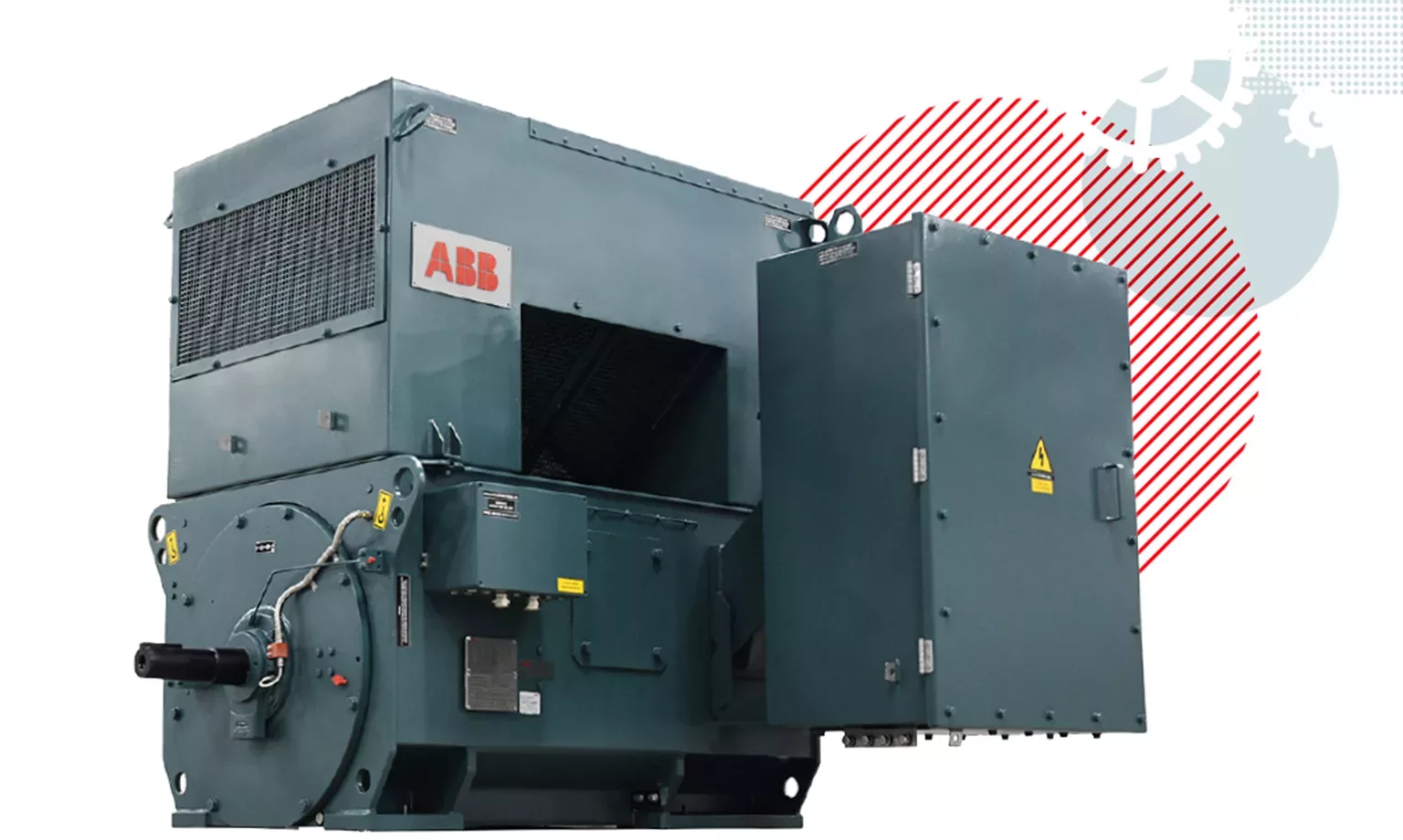We speak to Richard Matonich, Regional Division Manager for Large Motors and Generators at ABB, about the latest decarbonization technologies for industries across North America.
ENERGY EFFICIENT MOTORS
Electric motors are essential to a multitude of industries, but they are also major consumers of the world’s energy. Fortunately, high-efficiency motor technology is now available that is both good for sustainability and profitability.
It comes as no surprise that global industries are a major contributor to carbon emissions. Four in every 10 tons of coal are burned to power industry, and 42 percent of all electricity generated worldwide is used by industrial facilities. Decarbonization to reach net zero carbon emissions by 2050 therefore requires industry activity around the world to adapt.
Yet there is no single solution that will transform industries. Instead, it will be a combination of many technologies and approaches. Some, like the large-scale implementation of hydrogen, are not yet mature. Others, such as energy efficiency, are available for businesses to act on today, bringing us significantly closer to net zero. The International Energy Agency (IEA) calls energy efficiency “the first fuel – the fuel you do not have to use”.
“Fortunately, according to ABB’s March 2023 Energy Insights report, 97 percent of the 2,300 leaders of industrial businesses surveyed plan on improving energy efficiency,” begins Richard Matonich, Regional Division Manager for Large Motors and Generators at ABB. “There exist steps that businesses can take today to bring us closer to net zero.”
ABOUT ABB
ABB is a technology leader in electrification and automation, enabling a more sustainable and resource-efficient future. The company’s solutions connect engineering know-how and software to optimize how things are manufactured, moved, powered and operated. Building on more than 130 years of excellence, ABB’s 105,000 employees are committed to driving innovations that accelerate industrial transformation.
ABB not only advocates for a decarbonized future but also develops innovative solutions to reduce carbon footprint and minimize environmental impact. For example, the company recently launched the new generation AMI 5800 NEMA modular induction motor, which offers energy efficiency and reliability in demanding applications across various industries. Additionally, ABB has introduced the Top Industrial Efficiency (TIE) initiative, ensuring the availability of optimal large motor and generator solutions that offer the highest efficiency without compromising reliability or utilizing unproven technology.
DOING MORE WITH LESS
When looking for opportunities to improve efficiency, the electric motor is a logical place to start. Electric motors are common across industries – they power fans, compressors, pumps, conveyors, and all sorts of other machinery – and are highly energy-intensive.
“Collectively, the world has more than 300 million electric motors and the machines they power consume approximately 45 percent of all electricity generated. Further, the number of motors is expected to double by 2040,” Matonich tells us.
“Large industrial motors, in particular, must be a focus of efficiency efforts. Although these motors account for less than one percent of all electric motors, they use 23 percent of the electricity. In many cases, the larger the motor, the greater the potential for energy efficiency measures.”
Fortunately, motor technology has advanced rapidly. Today’s motors are even significantly more energy efficient than models from just five to 10 years ago, enabling facilities to greatly reduce the amount of power they use. This also has significant benefits in terms of energy security and operating expenditure (OpEx), especially during periods when electricity prices are high.
GOING BEYOND MINIMUM STANDARDS
The global drive for more efficient motor technology is, in part, advanced by authorities implementing minimum efficiency standards. These create market pressure for more efficient solutions, and many manufacturers work to develop solutions that exceed the minimum. This futureproofs end users against potential additional legislation and enables even greater energy savings.
For example, the latest generation AMI 5800 True NEMA motor is designed specifically for the North American market and achieves outstanding energy efficiency. All AMI 5800 configurations meet North American energy efficiency standards, and most configurations exceed them. Some even achieve efficiency greater than the IE4 equivalent “super-premium” level while still meeting NEMA standards.
“This design also offers a range of other benefits, including rugged reliability. It has a welded steel frame, which lowers stress on the motor and reduces vibrations. As a result, it is suitable for highly demanding applications, such as within the oil and gas, mining, cement, and metal industries,” Matonich explains.
“The AMI 5800 NEMA is compatible with common mechanical mounting standards and entirely modular in terms of cooling methods, bearing, shaft extensions and terminal boxes. This makes it ideal for new installations and retrofits of existing ones.”
BRINGING EFFICIENCY TO THE LARGEST MOTORS
However, unlike small and medium-sized motors, large motors in the tens of megawatts are not subject to minimum energy performance standards (MEPS). This is unfortunate, as efficiency is especially important in large motors – their power ratings are so high that tens of kilowatts can be saved with even relatively small efficiency improvements. Small decreases in the amount of power used also add up over time, which is significant as many large motors run for over 8,000 hours each year.
To address the lack of MEPS, ABB has launched the Top Industrial Efficiency (TIE) initiative to provide motors that meet the highest efficiency standard. TIE motors are no-compromise solutions that rely on proven technologies.
EFFICIENCY IS WIN-WIN
A common misconception is that energy efficiency is expensive – according to the Energy Insights Report, 33 percent of businesses list cost as a major obstacle to efficiency. Yet, in reality, greater energy efficiency results in direct savings.
“For example, 97 percent of the total cost of ownership (TCO) of a motor goes to the electricity required to power it. Considering motors typically last for 15 to 20 years, the potential savings are significant. Therefore, while more efficient motors may be slightly more expensive up front, they are far cheaper in the long term,” Matonich concludes.
“In this way, businesses can play their part in our global journey to net zero and reduce the operating costs associated with energy consumption – a genuine win-win. All we need now is for forward-thinking operators to take the initiative and begin making energy efficiency a top priority on the road to decarbonization.”
Learn more at https://new.abb.com/motors-generators/AMI5800































